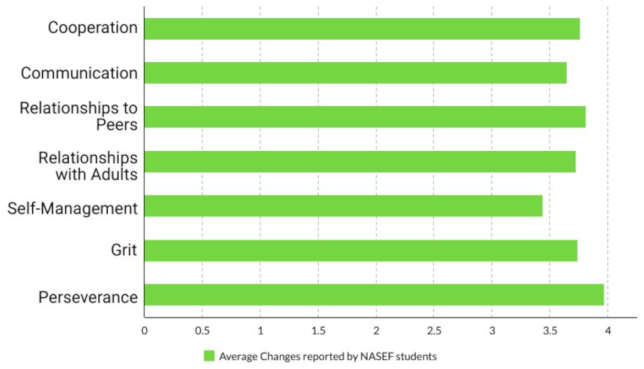Researchers Find SEL Gains for Students in Esports
- By Dian Schaffhauser
- 08/25/20
NASEF,
the North America Scholastic Esports Federation,
has found that students participating in esports showed "significant
development" of STEM and workforce skills and social-emotional
characteristics. The research was undertaken by the Connected
Learning Lab
at the University
of California, Irvine.
NASEF is a nonprofit that promotes the use of esports in schools.

Development
of social-emotional learning through scholastic esports. Source:NASEF
Students
engaged in NASEF activities showed growth in the skills needed for:
-
Science
learning, particularly asking questions and defining problems,
planning and carrying out investigations, analyzing and interpreting
data and doing scientific explanations and design solutions;
-
Math
learning, specifically problem solving, reasoning quantitatively,
attending to structure, attending to regularity and choosing the
appropriate math tool to use;
-
English
language arts, and especially communicating information,
constructing arguments and using evidence; and
-
Social
emotional learning, including mentorship, modeling, affiliation,
equity, teamwork, communication and leadership.
Students
at low-income schools garnered the greatest benefits of the NASEF
program, the research found, with "every significant difference
between schools favoring poorer schools, not richer ones."
On
the SEL front, students involved in NASEF clubs placed greater value
on a number of social skills than students who weren't involved.
Those included: perseverance, team building, empathy, critical
thinking, effort in school, a sense of belonging, school engagement
and school value. They were also "more keenly aware of their own
needed growth in emotional regulation skills," the researchers
noted.
The
investigations have been overseen by Constance Steinkuehler, a
professor of informatics in UC
Irvine's School of Information & Computer Sciences.
A
number of esports-related research reports are available on
the Connected Learning Lab's website.
About the Author
Dian Schaffhauser is a former senior contributing editor for 1105 Media's education publications THE Journal, Campus Technology and Spaces4Learning.